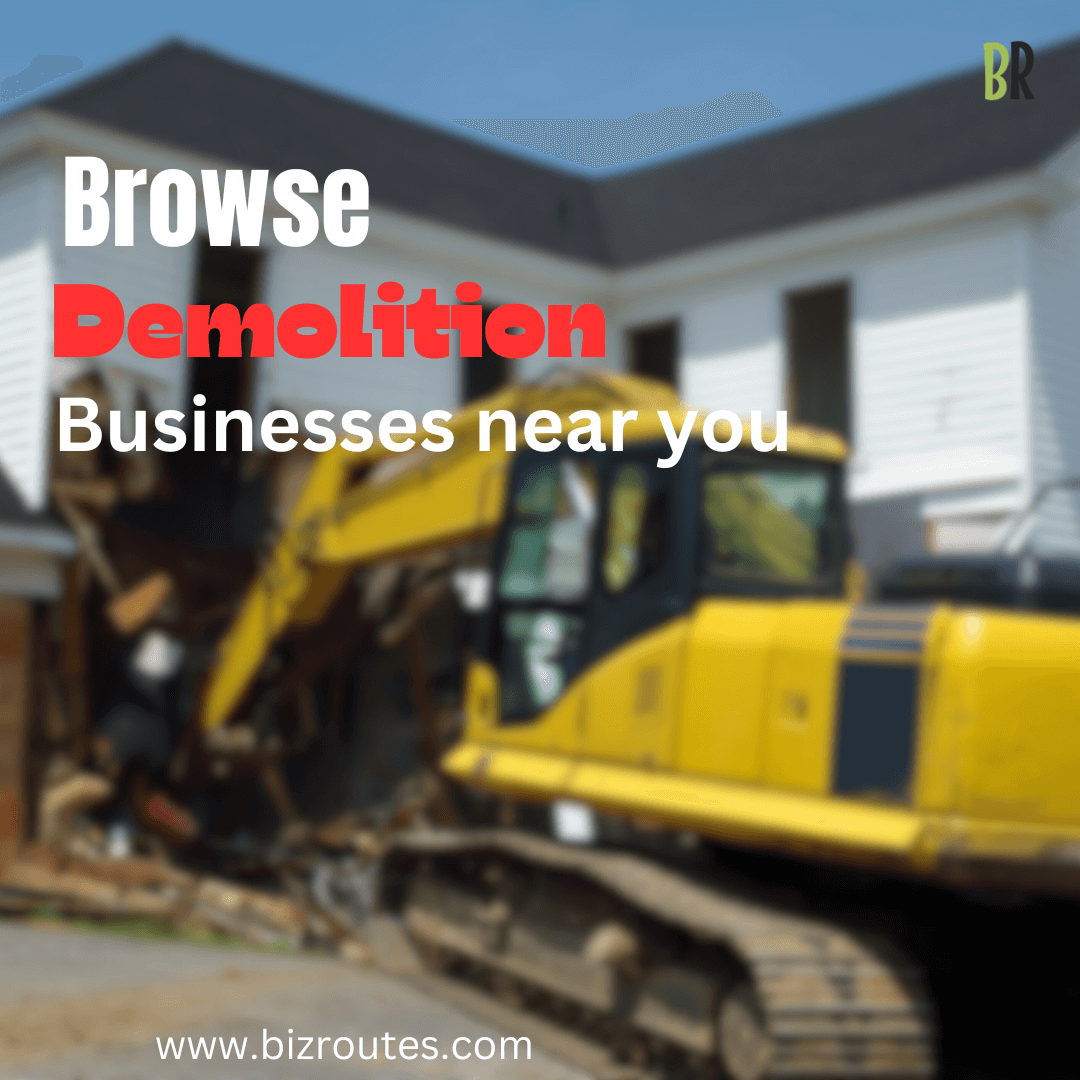



The Ultimate Guide to Hiring a Demolition Businesses
Welcome to "The Ultimate Guide to Hiring a Demolition Business." Whether you're considering demolishing a small structure or embarking on a large-scale project, this comprehensive guide is here to assist you. We will explore the array of services provided by demolition businesses, demystify their pricing methods, and offer valuable insights into what to consider when selecting the right demolition team.
Now, let's delve into the world of demolition and equip you with the knowledge you need to make informed decisions while keeping your project safe and cost-effective.
What services do demolition businesses offer?
Demolition businesses offer a range of services, including:
-
Structural Demolition: This involves the removal of entire buildings or significant structural elements.
-
Interior Demolition: These services focus on removing specific interior components or features within a structure.
-
Selective Demolition: This targeted approach removes specific structures or elements within a building while preserving others.
-
Site Clearing: Demolition companies can also clear and grade land for new construction projects.
-
Asbestos and Hazardous Material Removal: Demolition teams ensure the safe handling and disposal of hazardous materials, including asbestos, if present.
How do demolition businesses charge for their services?
Demolition costs depend on several factors and can be charged in various ways, including:
-
Factors Affecting Demolition Costs: The cost is influenced by factors like location, size, type of structure, and the presence of hazardous materials.
-
Demolition Cost Estimation: Request detailed quotes from multiple contractors to understand the project's specific costs.
-
Payment Structure: Demolition companies use various payment structures, including fixed-price contracts, time and materials, or lump-sum agreements. Discuss these options with potential contractors to find the most suitable one for your project.
What should you look for when hiring a demolition business?
When hiring a demolition business, consider the following factors:
-
Research and Prequalification: Ensure the contractor holds the necessary licenses, insurance, and certifications required for your project.
-
Experience and Portfolio: Review the contractor's past projects to gauge their experience and relevance to your needs.
-
References and Testimonials: Seek feedback from previous clients to assess the contractor's reputation and reliability.
-
Safety and Environmental Compliance: Confirm that the contractor adheres to safety regulations and environmental standards during the demolition process.
-
Equipment and Technology: Assess the quality and suitability of the contractor's equipment for your project's requirements.
-
Project Timeline: Discuss project schedules and deadlines to ensure they align with your expectations.
-
Contracts and Agreements: Carefully review all terms and conditions in the contract, including payment schedules and project details.
What does the demolition process entail?
The demolition process typically includes the following steps:
-
Planning and Permits: Begin by obtaining the necessary permits and creating a detailed demolition plan.
-
Site Preparation: Secure the demolition site and remove utilities to ensure safety.
-
Structural Demolition: Execute the demolition according to the established plan, considering safety measures.
-
Debris Removal and Recycling: Properly dispose of demolished materials, recycling whenever possible to reduce waste.
-
Site Cleanup: After demolition, ensure the site is clear, safe, and ready for the next phase of your project.
How should you manage communication and collaboration with the demolition team?
Effective communication and collaboration are essential throughout the demolition project:
-
Regular Updates: Maintain open and frequent communication with the demolition team to stay informed about project progress and any potential issues.
-
Problem-Solving: Address any challenges or unexpected situations promptly and work collaboratively with the demolition team to find solutions.
What should you do upon project completion?
Upon completing the demolition project, follow these steps:
-
Final Inspection: Conduct a thorough inspection to ensure all project requirements are met, including safety and environmental standards.
-
Documentation: Obtain all necessary documentation, including permits, certificates, and records of work performed.
-
Final Payment: Release the final payment only when you are fully satisfied with the completed demolition work and all contractual obligations have been met.
Conclusion
Hiring a demolition business is a significant decision that requires careful consideration. By understanding the services offered, costs involved, and what to look for in a demolition contractor, you can ensure a successful and well-executed demolition project. Thorough planning, effective communication, and adherence to safety and environmental standards are essential for a successful outcome.
The businesses listed in this directory have not been screened or verified. Please verify licenses, check for reviews, and exercise due diligence before engaging with any listed business.


Make sure to register below so you will never miss an opportunity





